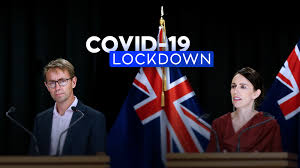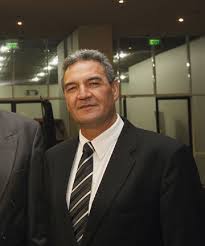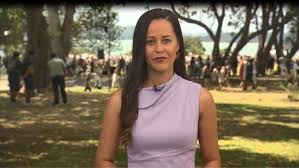We are a bit addicted to the “Jacinda and Ashleigh Show” on radio or TV most days at 1pm. The Prime Minister and the Director-General of Health present the latest news on Covid-19 with clarity and warmth. We are grateful that swift action to isolate cases and prevent the spread we have seen in some other countries mean we have the opportunity to concentrate soon on re-building the economy- or, better still, building a new and different future.
However, we are profoundly disappointed by the lack of a true Treaty partnership in presenting news and decisions in these extended programmes. How compelling it would be if we were told, every day, by Maori leaders as well as Pakeha, how testing, infection and treatment were progressing within mainly Maori communities as well as in Pakeha-dominant ones. And if we were told, frequently, what different cultures are learning from each other and sharing with each other.
As strong Maori voices are telling us, “We need to be at the table,
not just on the agenda!”
There are many inspiring stories available on the steps Maori have taken to protect and support hapu and iwi. We listen to Radio Waatea most mornings, and watch Maori Television most evenings, as well as engaging with Pakeha media, and the stories being told on Maori media are often truly inspiring. Sometimes they are also infuriating- like the accounts of too-frequent refusal of non-Maori staff in testing centres to test Maori people for Covid-19 infection. Rates of testing are, needless to say, much higher in those centres set up and run by Maori, with health workers who are speakers of Te Reo. If we want an accurate picture of infection rates we need both.
We also need to hear the imaginative new projects being suggested by Maori community leaders for the economic recovery period (which we hope will begin very soon). For instance, a team from Whanau-a-Apanui on the East Coast are planning a major restoration project for the Raukumara Range forest, which has been largely neglected for 60 years and is now in danger of collapse because of the ravages of possums, deer, pigs, rats, and other pests.
We encourage everyone we know to keep in touch with Maori views via Maori media during this rāhui period – and beyond, of course – you will find much to entertain, impress and challenge you, as we do.
Here are the websites for our two main sources of information:
Radio Waatea (an Auckland-based station, on 603 AM) features an excellent breakfast programme – its host, Dale Husband, interviews key people each weekday, including Maori community leaders. He is renowned for his warmth, courtesy and kindness and his perceptive questioning. Many of the interviews (mainly in English) are available from the website as podcasts:
https://www.waateanews.com/Whats+On+Waatea.html
Maori Television has a fine news programme, Te Ao, every evening at 6.30pm on Freeview Chanel 5, as well as providing access to a wide range of items through its website too:
https://www.maoritelevision.com/
Wikitoria Day, fluent in Te Reo and always well-informed, is one of the main front people, seen here broadcasting from Waitangi in 2020.
How can we hope to come out of this epidemic with a sound nation, let alone a better one, if we continue to enshrine structural racism – the continuing exclusion of key Maori decision-makers and Maori community people both in practice, and in media visibility at a local and national level?
Watch some of these items if you’d like to know what’s being done
by Maori, for Maori:
https://www.teaomaori.news/covid-19?_ga=2.179419108.1511765170.1587181430-427340938.1587181430
Te Whakaputanga in 1835, and then, 5 years later, Te Tiriti o Waitangi , promised the honouring of Maori sovereignty – two peoples, cooperating – and we are still waiting, 185 years later, for the Pakeha majority in our British-derived government structures to understand the huge advantage we would have if we achieved this: a nation shaped by weaving together, as promised, the strands from our two different founding peoples, rather than just hanging mostly onto one rope attached to a country 20,000 km away.
Footnote: after writing this page, we were delighted to find an excellent article on this morning’s Newsroom:
The relevance of Te Tiriti o Waitangi in the Covid-19 era
By Dr Claire Charters | Click here to read
***************************************************
STOP Press:
On “Marae”, broadcast at 10.00am on TV1 (Sunday 19 April) we heard a most exciting commentary on the Covid crisis and education – a profoundly radical critique of the attempt to impose a single model of our outdated monocultural curriculum on young people returning to schooling after the Covid lockdown period.
The alternatives suggested by Professor Linda Tuhiwai Smith, one of the two panelists, included teaching all the young people of Aotearoa Te Reo Maori during this crisis, using whatever online tools and best teachers Maori can marshall, and implementing a whole new curriculum with students around what is happening to them, their families, our communities and our nation right now because of the virus- this could include, for example health, diseases, treatments, the mathematics of epidemic spread, social systems and strategies – obviously as relevant to the students’ own questions and existing knowledge bases- the possibilities are enormous!
” The curriculum is the Covid Crisis!” she said, among many other challenges.
We hope at least some schools will replay this programme and think seriously about stepping forward into real, relevant education.
(Linda Smith was, from 1984-87, a guidance counsellor at Auckland Girls’ Grammar School, and instrumental in supporting the establishment of Nga Tumanako o Kahurangi, thus transforming the school. She has since become one of Aotearoa’s foremost academics with an international reputation for her work on the impacts of colonisation and approaches to decolonisation)




 Earthsong Eco Neighbourhood
Earthsong Eco Neighbourhood Public Good
Public Good
Speak Your Mind